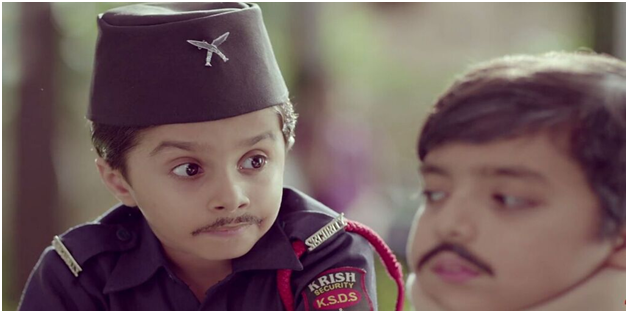Flipkart's Recent Ad Promotes Racial Stereotyping Of Nepalis

Flipkart, an Indian e-commerce store, recently posted a video advertisement titled 'Kids Are Back'. The ad has three children posing as a Saabji (master) and the other two as security guards. One of the guards was wearing a Gurkha cap (topi) and bearing a Khukuri (a symbol of honor and valor of the Nepali). He was referred to as ‘bahadur’ by the Saajbi. The term bahadur means ‘brave’, but the ad gave it a more negative connotation.
The Gurkha Samaj in India immediately reacted to the racist advertisement. They filed a case at a police station in Delhi. Flipkart received several complaints and negative feedback about the advert. And the company issued an apologetic statement that it had no intention to hurt the community. But why do companies and people act racist in the first place? It is amusing because they later expect to receive forgiveness.
Racism toward Nepalis in general in India is not an isolated incident. The Gurkha community and Nepalis have faced racism in few Hindi movies in the past. The baffling part is there are Indian Nepalis living in India who have to face such a ridiculous racist ad. At the same time, they hear the racist term ‘bahadur’ by their own fellow people. Even Aamir Khan portrayed -- in a Coca-Cola advertisement years ago -- a Nepali guide who acted dumb. Thus, portraying Nepalis as pretentious and having a low IQ.
The Flipkart advertisement tries to argue that Gurkhas are Bahadurs - watchmen or security guards. This vagarious ad gives the idea that the job of guarding houses belongs to Gurkhas. There’s a clear sign of job assigning via the video. But it’s not just Gurkhas and Nepalis that are victims of racial stereotyping.
Most races and social groups have encountered racism. The sad part is that certain media groups are in control and ownership of the other class. Would an Indian company make an advertisement video depicting Indians as petty thieves? Who remembers the infamous Ashton Kutcher ‘Popchips’ advert? He played Raj, a Bollywood producer, looking for love. The Indian community in the U.S. was swift to react to it as being racist. They commented that referring to Indian Americans and immigrants as Raj wasn't acceptable. The brown makeup of the American actor didn’t bode well with many.
Racial stereotyping through advertisements has lasted for years. The western media has aired ads depicting racial hatred against blacks, Hispanics, and brown people. Unfortunately, several big companies published such ads.
I have no memory of advertisements depicting Indians as superior in Nepali ads. But, I have seen people hating Indians, particularly. Also, there is evidence of racism in Nepali media and cinema against certain groups in India.
It seems multinational companies in India like Flipkart do not care about other communities. They lack the humility to acknowledge them as human. Racial stereotyping has a domino effect since Indians become victims of racism abroad. In turn, they do the same back home. We know about incidents where North East Indians have been victims to racist slurs. They hear names such as ‘Chinese’, ‘Chinky’, and ‘dog and cow eater’. When racism hits television channels, what it does is that it tells people that it is okay to be a racist and it is normal.
The abnormality is that particular racist adverts become aired again and again. Those ads shape people to hate and mistreat those who look different from them. It is still unfortunate that a democratic country like India suffers from ads like ‘Fair & Lovely.’ It is common knowledge that a whitening cream will not change the color of your skin. The advertisement has constructed a visual narrative that being fair-skinned means to be beautiful.
Nepalis, Indians, and South Asians have faced constant racism at home and abroad. It doesn’t matter which social group you belong to because you will face racism once in a lifetime somehow. There’s a difference between becoming victim to an individual racism and a collective one. The media and advertising world of India need a revamp for its people and neighbors. The constant bombardment of ads about whitening cream to make the skin fairer is harmful. Also, picking on Gurkhas who actually protect the Indian borders needs to stop. We already live in 2016 and it is the time that we move beyond petty racial stereotyping and hatred. The malice advertisements that divides communities and nations in fact promote counter racism. Racism is often a social construct, and other times it is due to an individual's nature and behavior. But does it mean we continue to promote stereotyping through different forms? No.
For now, Flipkart has removed the topi and Khukuri from one of the children in the advertisement. They also have modified the voice. The original video too is not available on their YouTube channel. Their press statement conveyed their apologies. It is one thing to be diplomatic and apologizing, but for change to take place, apologies are not enough. Action needs to be taken to ensure that such incidents do not arise. If adults act in such a manner, I wonder what ethical message we are imparting to our children. That we live in a racist world, and it’s okay to be racist.



